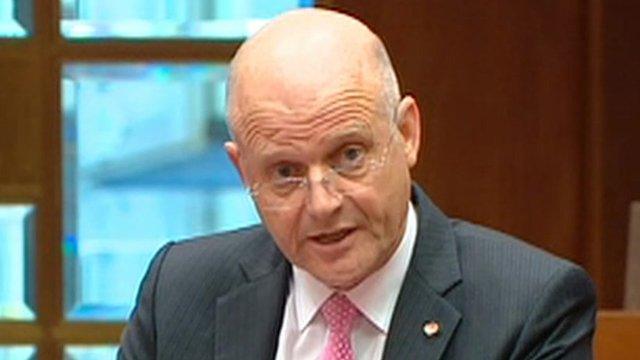Who's who in Australia's 2016 federal elections?
- Published
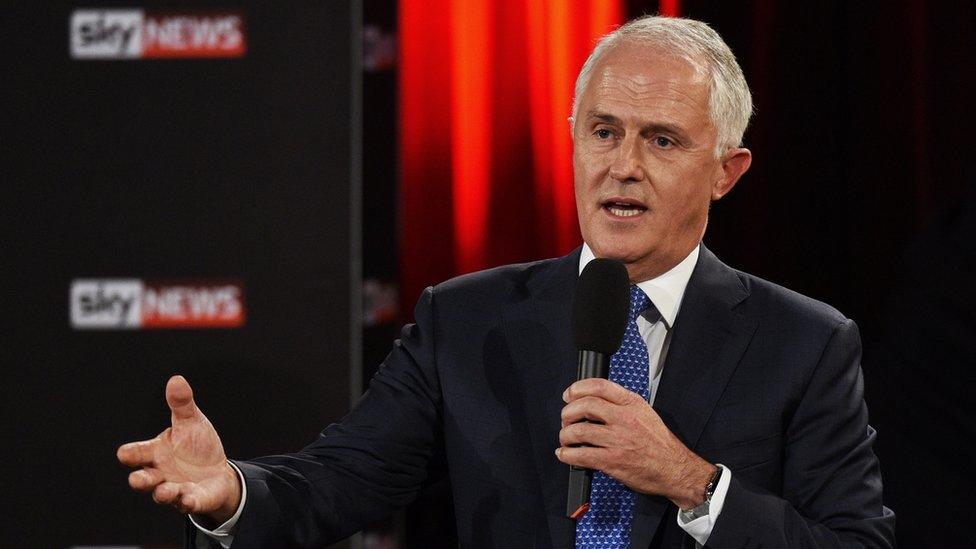
Prime Minister Malcolm Turnbull
As Australia's federal election approaches this weekend, the country is entering its final countdown and the candidates have only a few days left to campaign. But who are the main players?
Prime Minister Malcolm Turnbull (Liberal Party)
A former journalist, barrister and investment banker, he is Australia's fifth prime minister since 2007.
Within the conservative coalition government, Mr Turnbull is known for his progressive views on climate change, same-sex marriage and the republican movement.
He seized the leadership of the party in 2008 before being ousted by his socially conservative rival Tony Abbott.
Mr Abbott led the Liberal Party back to government in 2013 on a platform of austerity and border protection, but in office was plagued by gaffes and poor opinion polls. Mr Turnbull toppled the former prime minister in a party coup last year.
During the government's re-election campaign, Mr Turnbull has offered a vision of a "start-up" Australia, arguing that his party is best placed to transition the country from the mining boom to a new phase of economic growth.
Opposition Leader Bill Shorten (Labor Party)
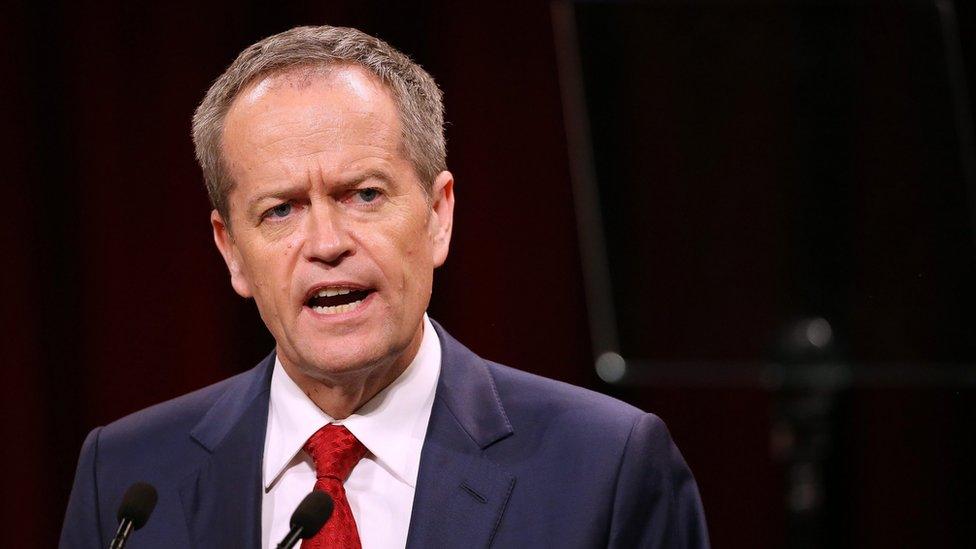
A former union organiser, Mr Shorten came to national attention 10 years ago during the Beaconsfield mine collapse, rallying behind two miners trapped underground.
He ascended to the Labor Party leadership in the wake of a turbulent period and defeat at the 2013 election.
Mr Shorten is campaigning to make Australia a "fairer" country, nominating education, healthcare and climate change as key concerns in the election.
He is regarded as having run a strong campaign and Labor appears poised to win seats, but polls indicate he may fall short of the numbers required to form government.
Deputy Prime Minister Barnaby Joyce (National Party)
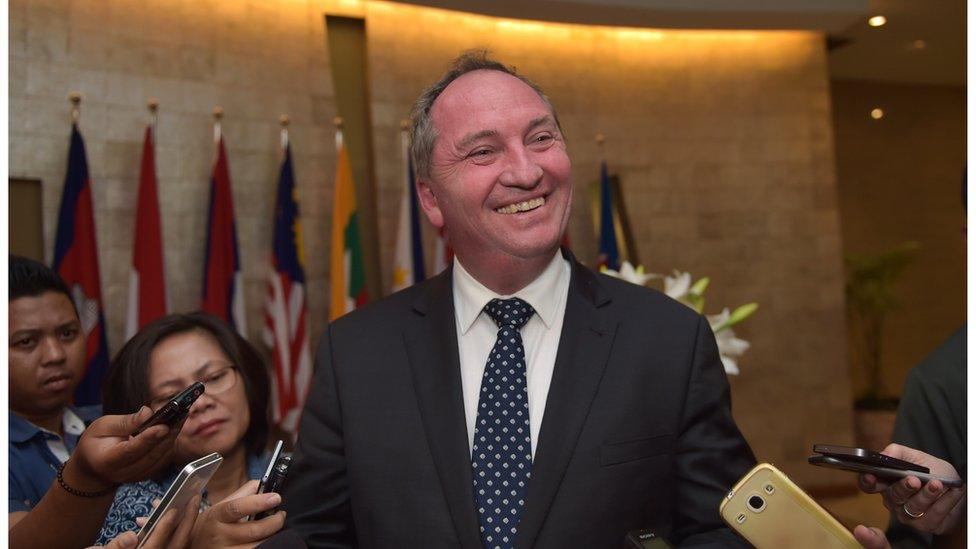
The Australian politician who threatened to kill Johnny Depp and Amber Heard's dogs rose from a rural childhood to one of the most powerful offices in the country.
Described by the Hollywood star as a "sweaty, big-gutted man", the unorthodox politician also has a more thoughtful side.
He has bucked traditional conservative stances to block open-cut coal mining in the Hunter Valley, supported calls in favour of medical marijuana and lobbied against the sale of Australia's largest farm to a Chinese company.
The leader of the rural-focused National Party - which forms a coalition government with the Liberal Party - is in the midst of an fierce re-election contest with a popular rival for his seat in New South Wales.
Senator Nick Xenophon (Nick Xenophon Team)
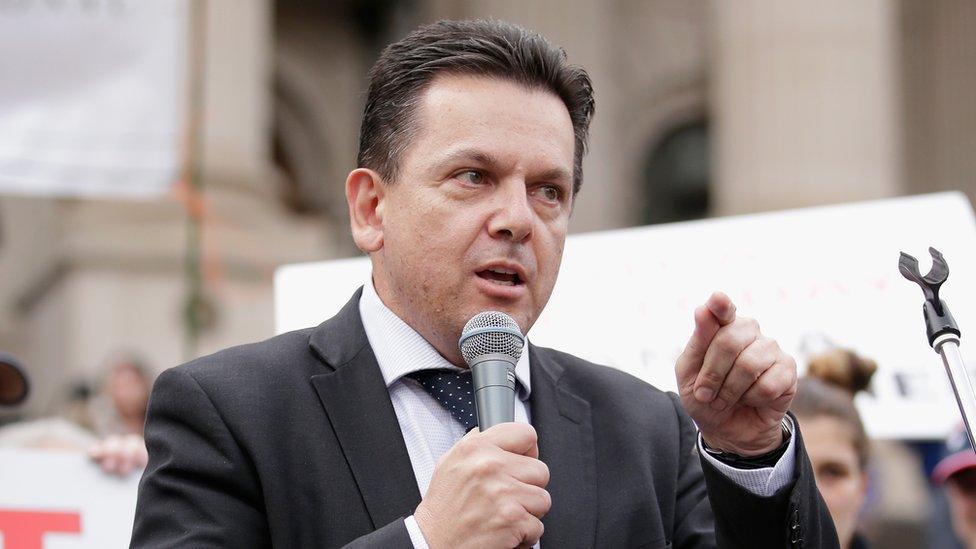
An independent senator from South Australia has emerged as a potential kingmaker.
Mr Xenophon has exploited widespread voter fury after former prime minister Tony Abbott backtracked on a promise to build a submarine fleet in Adelaide.
A successful lawyer before he entered politics, his eponymous party was formed to combat "voter disillusionment" and the "lack of trust in politics".
He is fielding almost 50 candidates across the country and appears to be in a strong position to win upper and lower house seats in South Australia. He will likely cause headaches for the major parties in traditional battlegrounds.
Senator Richard di Natale (Greens)
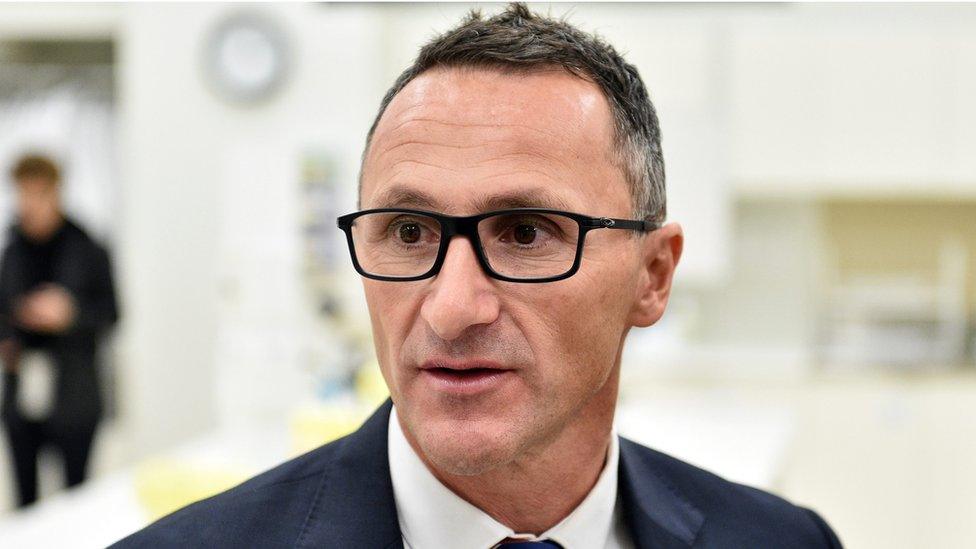
Richard di Natale has managed to move the Greens away from the fringes of Australian politics. The party is particularly competitive in inner-urban areas where climate change and refugees are the hot-button political issues.
The Greens leader's credentials on housing affordability and protecting workers pay and conditions were undermined in May when it emerged that he incorrectly declared a family farm and underpaid three au pairs that looked after his two sons.
The former doctor remains confident that the party will pick up some key lower house seats and is growing in power.
In addition to environmental issues, the Greens are campaigning on their track record on multinational tax avoidance, same-sex marriage and ending Australia's offshore detention of asylum seekers.
Senator Jacqui Lambie (Jacqui Lambie Network)
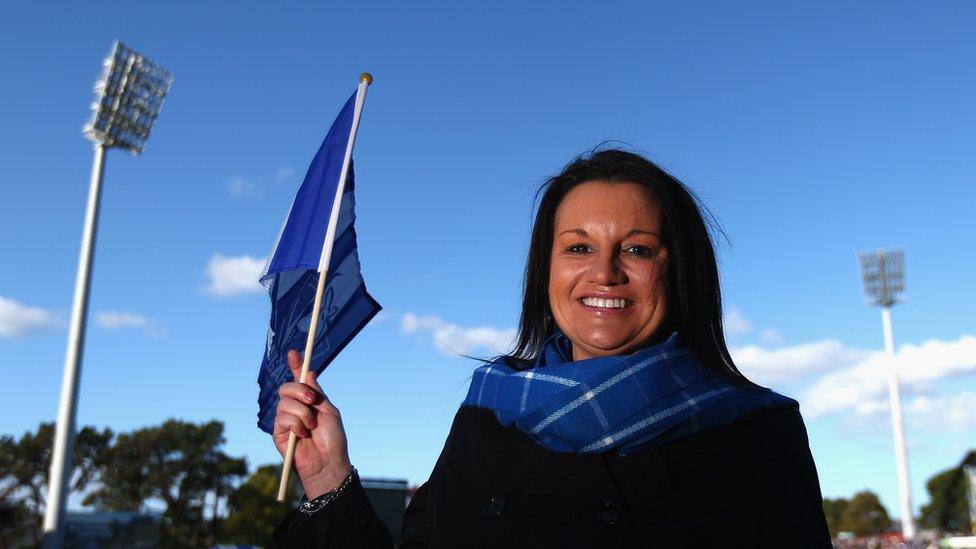
One of the most controversial politicians running in the election walked away from mining magnate Clive Palmer's Palmer United Party.
A former soldier who battled with prescription drug and alcohol addiction, the senator is difficult to define politically.
The unpredictable Tasmanian has warned about the threat to Australia from China and Indonesia, opposes same-sex marriage and once introduced a bill to ban burkas in Australia.
The senator is running a campaign that pledges support for military veterans and the unemployed.
Senator Glenn Lazarus (Glenn Lazarus Team)
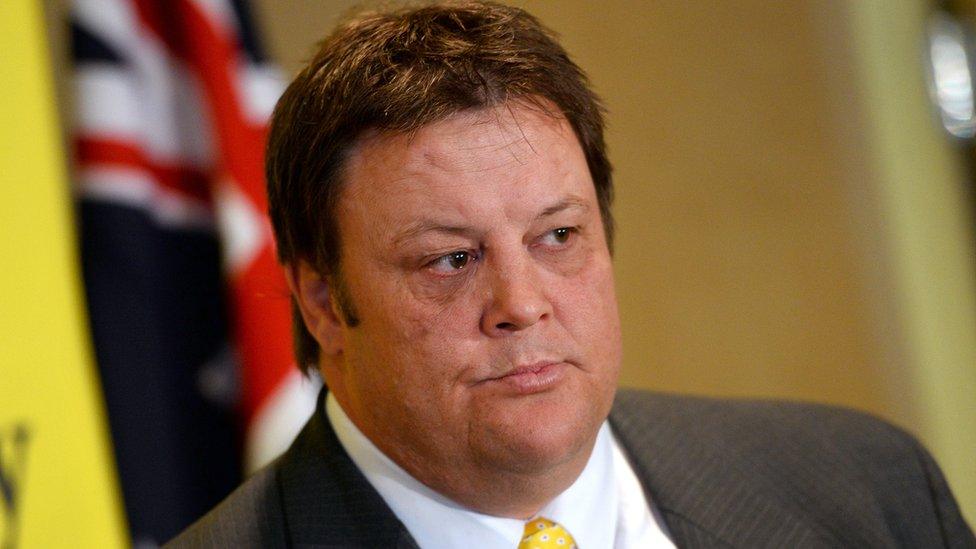
Nicknamed "the brick with eyes" during his playing days, the former professional rugby league player ascended to the Senate as a Palmer United Party candidate.
He defected after reports that his wife was subjected to "foul language" and bullied by the businessman.
Earlier this week Mr Lazarus crushed a hatchback with a tank to bring attention to his efforts to protect Australia from faulty imported cars.
Senator Ricky Muir (Australian Motoring Enthusiast Party)
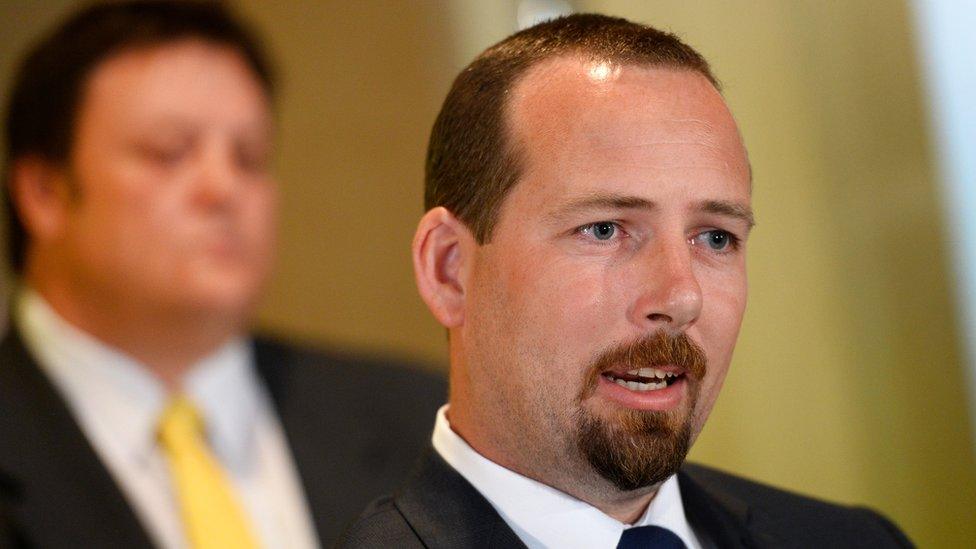
This accidental politician was elected at the last federal election as a senator for Victoria with less than 1% of the vote.
The government has subsequently closed the arcane voting preference loophole that allowed the former sawmill worker to enter the Senate.
He arrived in Canberra with zero political experience and was sneered at by political elites - especially after he crashed a car during a 60 Minutes interview.
Since distancing himself from the Palmer United Party, the senator has often voted with his conscience, assessing each bill on its merits.
The self-described "average Australian" may defy the odds again for re-election.
Senator David Leyonhjelm (Liberal Democratic Party)
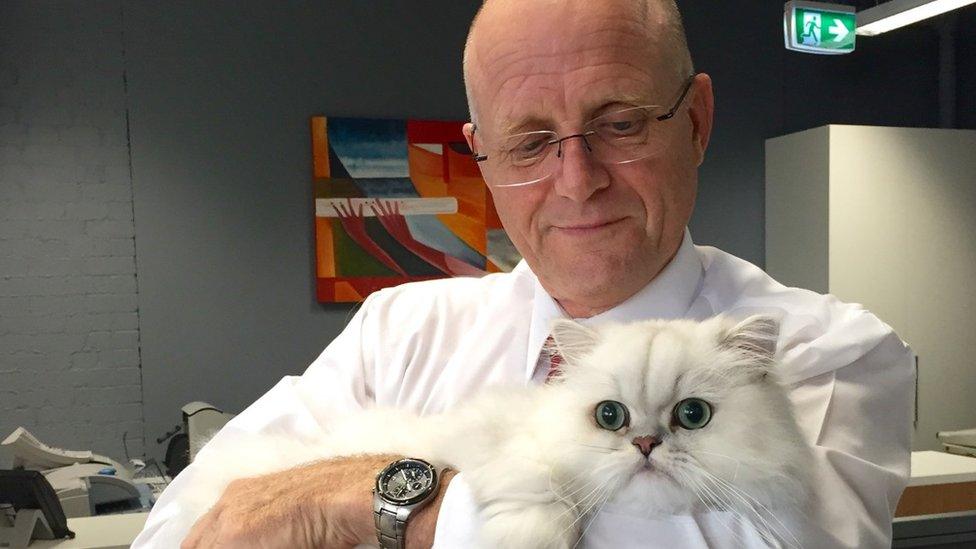
Usually it is the public that directs coarse language at politicians - not the other way around.
Senator David Leyonhjelm has often made headlines for the wrong reasons: sending a high-profile female journalist an abusive text, declaring that "all cops are bastards" and saying that tough gun laws had turned Australia into a "nation of victims".
Australia's first elected member of a libertarian party, his causes include repealing gun control laws, lifting speed limits, decriminalising drugs and legalising voluntary euthanasia.
An agricultural consultant with a passion for target shooting, Mr Leyonhjelm has produced one of the campaign's weirdest video, external - an ad where two pugs named "Mal" and "Bill" devour a cake as a metaphor for major party interference with pension plans.
Pauline Hanson (Pauline Hanson's One Nation)
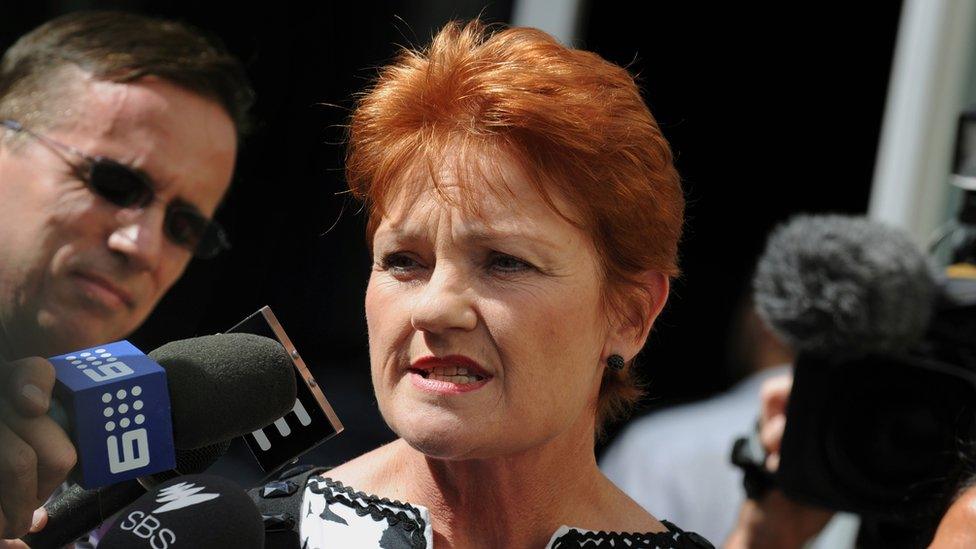
Pauline Hanson - one of the most controversial figures in modern Australian history - has returned to politics.
The former fish-and-chip shop owner founded the far-right political party One Nation and entered parliament on an anti-multicultural platform in 1996.
She said that Australia "was in danger of being swamped by Asians" who "have their own culture and religion, form ghettos and do not assimilate".
Ms Hanson lost her seat in 1998 and went on to lose four more elections at state level.
She was removed as the party's leader in 2002 and was sentenced to jail for electoral fraud in 2003, but later had her convictions overturned.
Some pollsters have rated Ms Hanson's chances of returning to Canberra as a senator for Queensland as "realistic".
- Published27 June 2016
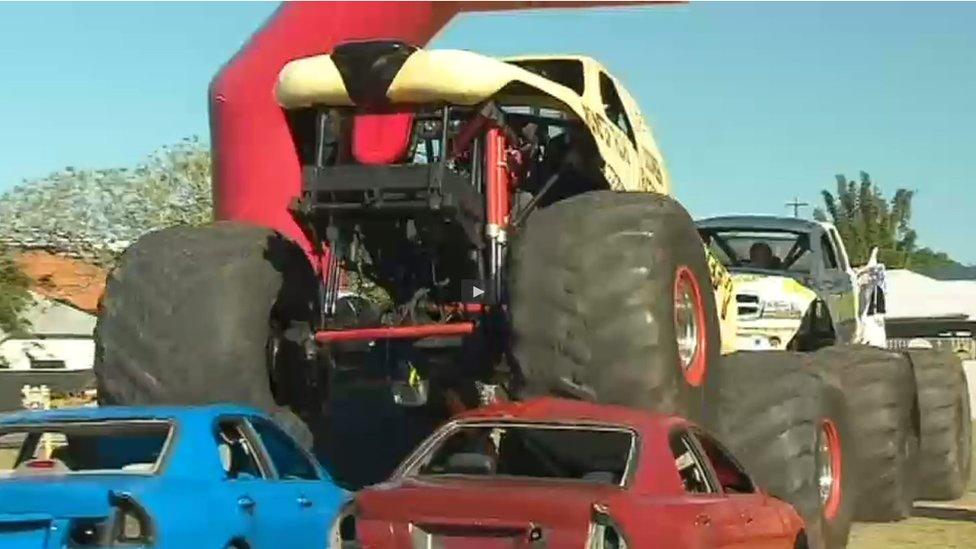
- Published4 May 2016
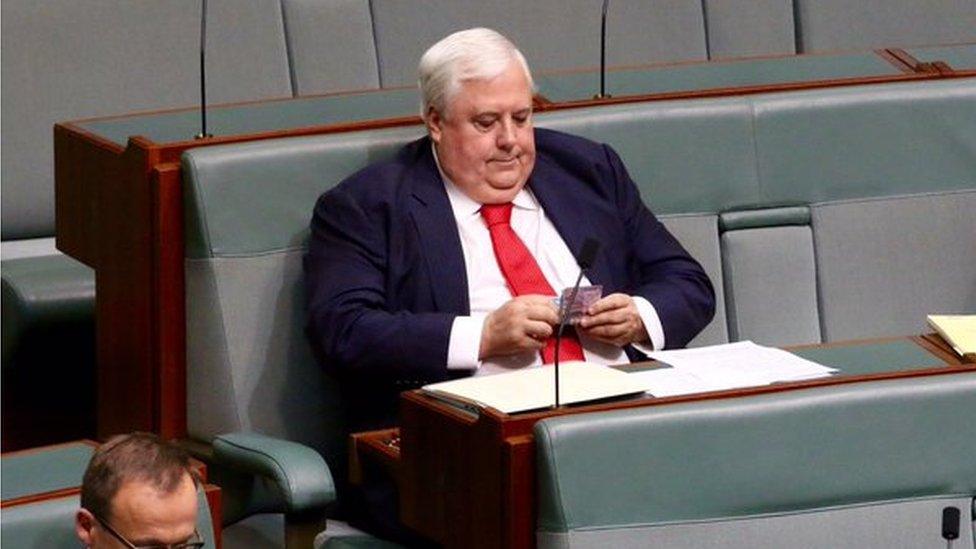
- Published24 May 2016
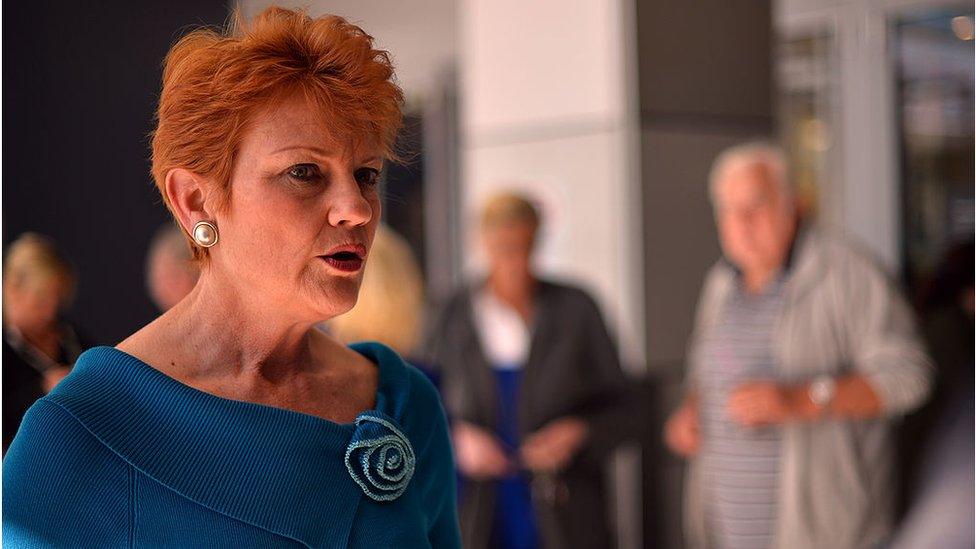
- Published25 November 2015
